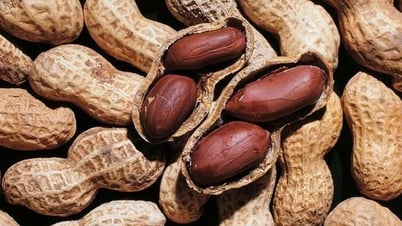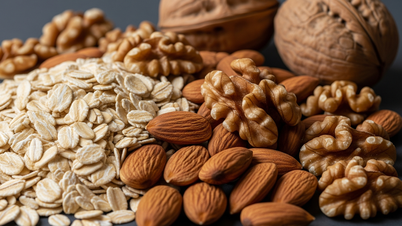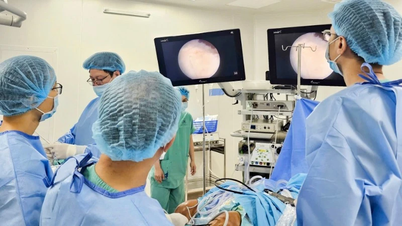Constipation is a very common health problem, but if it lasts for a long time, it can cause potential harm to health. A recent study found that constipation can significantly increase the risk of heart attack and stroke, especially for people with high blood pressure.
The study was published in the American Journal of Physiology-Heart and Circulatory Physiology . Scientists analyzed data from more than 400,000 people from the UK Biobank database to examine the link between constipation and the risk of cardiovascular disease, according to the US health website Healthline .

Frequent constipation can increase your risk of heart attack, stroke, and other cardiovascular problems.
After analyzing the data, the team of scientists discovered that constipation can increase the risk of heart attack, stroke and other cardiovascular problems by up to 68%. Specifically, people with constipation are 2.7 times more likely to have heart failure, 2.4 times more likely to have a stroke and 1.6 times more likely to have a heart attack.
The study authors believe the new findings could help them pave the way for new treatments. In fact, frequent constipation could even be seen as a warning factor for heart attack risk.
How to prevent and treat constipation
Constipation is caused by many different factors, from a diet lacking in fiber, drinking little water, drinking too much alcohol, side effects of medication or having some physical illness. To prevent and treat constipation, people need to change their diet and lifestyle.
The first thing to do is drink plenty of water. Food and stool need water to move through the intestines easily. Dehydration causes stool in the intestines to not be moist enough and this is a common cause of constipation.
Another important thing to prevent constipation is to eat plenty of fiber. For good bowel movements, you need to eat enough fiber. Fruits, vegetables, whole grains, beans, and mushrooms are ideal sources of fiber for the intestines. Fiber makes stools softer and easier to pass through the intestines, thereby preventing constipation. Experts recommend that an adult should eat about 25 to 30 grams of fiber per day.
In addition, people should also limit alcohol and should eat foods that help stimulate the growth of beneficial bacteria, such as yogurt. Exercise also helps reduce constipation. Just exercising at least 30 minutes a day is enough to stimulate intestinal muscles to contract and reduce constipation, according to Healthline.
Source: https://thanhnien.vn/van-de-tieu-hoa-it-ngo-toi-lam-tang-nguy-co-dau-tim-dot-quy-185241103204917664.htm


![[Photo] General Secretary To Lam, Secretary of the Central Military Commission attends the 12th Party Congress of the Army](https://vphoto.vietnam.vn/thumb/1200x675/vietnam/resource/IMAGE/2025/9/30/9b63aaa37ddb472ead84e3870a8ae825)
![[Photo] General Secretary To Lam receives US Ambassador to Vietnam Marc Knapper](https://vphoto.vietnam.vn/thumb/1200x675/vietnam/resource/IMAGE/2025/9/29/c8fd0761aa184da7814aee57d87c49b3)
![[Photo] Solemn opening of the 12th Military Party Congress for the 2025-2030 term](https://vphoto.vietnam.vn/thumb/1200x675/vietnam/resource/IMAGE/2025/9/30/2cd383b3130d41a1a4b5ace0d5eb989d)
![[Photo] The 1st Congress of Phu Tho Provincial Party Committee, term 2025-2030](https://vphoto.vietnam.vn/thumb/1200x675/vietnam/resource/IMAGE/2025/9/30/1507da06216649bba8a1ce6251816820)





























![[Photo] General Secretary To Lam attends the ceremony to celebrate the 80th anniversary of the post and telecommunications sector and the 66th anniversary of the science and technology sector.](https://vphoto.vietnam.vn/thumb/1200x675/vietnam/resource/IMAGE/2025/9/29/8e86b39b8fe44121a2b14a031f4cef46)





























































Comment (0)